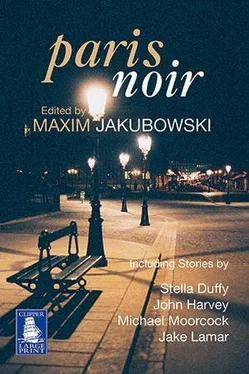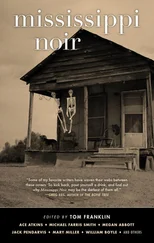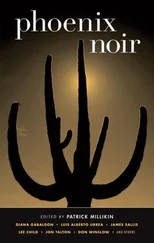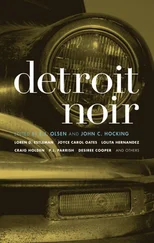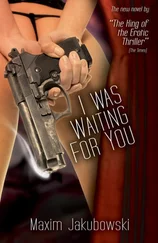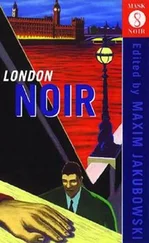Maxim Jakubowski - Paris Noir
Здесь есть возможность читать онлайн «Maxim Jakubowski - Paris Noir» весь текст электронной книги совершенно бесплатно (целиком полную версию без сокращений). В некоторых случаях можно слушать аудио, скачать через торрент в формате fb2 и присутствует краткое содержание. Жанр: Детектив, на английском языке. Описание произведения, (предисловие) а так же отзывы посетителей доступны на портале библиотеки ЛибКат.
- Название:Paris Noir
- Автор:
- Жанр:
- Год:неизвестен
- ISBN:нет данных
- Рейтинг книги:3 / 5. Голосов: 1
-
Избранное:Добавить в избранное
- Отзывы:
-
Ваша оценка:
- 60
- 1
- 2
- 3
- 4
- 5
Paris Noir: краткое содержание, описание и аннотация
Предлагаем к чтению аннотацию, описание, краткое содержание или предисловие (зависит от того, что написал сам автор книги «Paris Noir»). Если вы не нашли необходимую информацию о книге — напишите в комментариях, мы постараемся отыскать её.
Edited by Maxim Jakubowski, the stories range from quietly menacing to spectacularly violent, and include contributions from some of the most famous crime writers from both sides of the Atlantic, as well as the other side of the Channel.
Paris Noir — читать онлайн бесплатно полную книгу (весь текст) целиком
Ниже представлен текст книги, разбитый по страницам. Система сохранения места последней прочитанной страницы, позволяет с удобством читать онлайн бесплатно книгу «Paris Noir», без необходимости каждый раз заново искать на чём Вы остановились. Поставьте закладку, и сможете в любой момент перейти на страницу, на которой закончили чтение.
Интервал:
Закладка:
So. Lunch. Dinner. From the Old French disner, original meaning: breakfast, then lunch, now dinner. Because any attempt to dine, at whatever time of day, will of course break the fast that has gone before, whatever time period that fast encapsulated, night, morning or afternoon. Whenever I broke my fast with her, for her, she insisted we dine first.
Some time ago I spent a weekend with friends in London. At their apartment, their flat, my London friends talk about words. The English are very good at discussing words, it lessens their power, words as landmines, easily triggered, makes them readable, understandable. Stable. My friends discussed lunch or dinner, dinner or tea. If the difference were a north/south divide or a class construct. In London they talk about north and south of the river, here it is left and right. The faux-bohemian sinister and the smooth, the near, the adroit. I prefer north and south, it’s harder to get lost. Apparently they’ve found her. Marie-Claude. Found her body. It’s why I’m here.
When I tear my eyes from the gutters and the beggars and the street corners designed to frame a new picture with every stone edge, I look to high chimneys. I am not keen to see shop doors and windows, avenues and vistas, not yet. There is something I need to see first. One thing. I can manage right up and far down, to the far sides, I have the opposite of tunnel vision. There is graffiti, very high, on tall chimneys and cracked walls where one building has been leaning too long on another. This is not what they mean when they talk about a proper view, a scene in every Parisian glance, but it’s diverting enough. I am eager to be diverted. I take a left turn and a right one and another left, still closer to the river, nearer the water, but a narrow road uphill now, heading east, there are more people on the street, or less space for them to walk, they touch me sometimes, their clothes, coats, swinging arms. I do not want to be touched, not like this anyway, not dressed, covered, hidden. It will all be open soon.
These side streets, those to the left and the right, east and west, are not so pretty as the views the tourists adore. She and I sat together once, in the restaurant, and listened to an old Australian couple discuss the difference between London and Paris. The woman said Paris was so much prettier, the French had done very well not to put the ugly modern beside the old beautiful. Her husband agreed. And then he said, in a tone calculated to reach the walls of stone, that the French had capitulated during the war. That is why their city was not bombed, why Paris was prettier than London. Though he agreed, the weather was better too, which helped no end. The afternoon progressed, the Australian man drank more wine, and he went on to eat every course the waiters placed before him. I cannot begin to think how much of the waiters’ saliva he must also have enjoyed.
The street I find myself in now is not that pretty. It is poor and messy. Here they sell kebabs and Turkish slippers and cigarettes, and the bread in these shops was not freshly baked on the premises first thing this morning, and the fruit has not been raised lovingly in a farmer’s field with only sunshine and rain to help it on its way, there are no artisans here. But this is Paris too, regardless of how few tourists see these sights. Marie-Claude showed me these streets, brought me here to explain that there were worlds where no one cared if the Pyramid was appropriate or not, that the walls around Rodin’s garden were too high for locals to climb, that even one euro for a good, fresh, warm croissant is too much for too many. She insisted she knew these streets well and they knew her and that what I read as amused tolerance in the faces of the half-strangers she greeted was friendship and acceptance to her. It may well have been. She is not here now for me to compare the look in her eyes against theirs and I do not have the courage to lock eyes with these men. These shopkeepers are all men. I have thought about this many times. Where are the women shopkeepers? Can they really all be at home with so many children and so much housework and such a lot to do that they do not want to run their own family business, stand alongside their loved one, work hand in hand? Or perhaps they do not have the skill to sell all this stuff? These lighters and batteries that will die in a day. These shoes made by God knows how many small children in how many village factories. Perhaps it is simply that women are better with fruit and vegetables, the items that were once, more recently, living. Maybe this is why the women run market stalls while their husbands and sons and fathers run shops. Or perhaps the women are afraid of bricks and mortar, always ready to pick up their goods and run.
She did not like to run, Marie-Claude, said it made her too hot, sticky. Sticky was not good. Cool and calm and smooth and tidy and groomed and perfect. These things were good, right, correct. To be that way, held in, neat, arranged, arrayed, that was appropriate, proper. Propre. Which is clean. And it is also own, as in one’s own. Thing, possession, person. One word, two meanings. So many ambiguous words. Yes. No. The things that can be read into any phrase. And accent makes a difference of course, culture, upbringing. We often fail to understand those we grew up with, our brothers and sisters, mistaking their yes for no, truth for lies, despair for hope. How much harder to understand total strangers, when they stand at shop doors, form a picket line, love you, leave you, cheat, lie, misbehave.
It was the drugs of course. It always is. She simply couldn’t say no, non, nyet, nein, ne. That’s what I hate about all those heroin chic films – one of the many things I hate about all those heroin chic films – how they always make the users look so dirty. Messy. Unkempt. She, as I have explained, was the opposite. Our media, those stupid cop shows and the angry young men films made by angrier (but so much duller, and often older than they admit) young men, has convinced us that the drugs make you ugly, your hair lank, eyes glazed, skin grey. Which could not be further from the truth in her case, her metabolism loved it, thrived on it. Yes, she might not have been able to keep going at this rate for more than another decade, she’d have had to slow down eventually, but careful, planned use, clean equipment and good veins, hungry lungs, open mouth, eager nose – her body loved it all. Loved all her body. I did. He did. They did. She did. We did. Maybe you did. I don’t know, it doesn’t matter, this is my side of the story. Yes. Yes. In my own time, taking your time to explain. I apologise, I know you value your time…
I do not mean explain as in excuse. I mean as in reason. There are always reasons.
There was the habit of course, the way ex-smokers regret the loss of a packet to open, cellophane to rip off, mouth to hold, match to strike. I know she liked the accoutrements, the little bit of this and little bit of that, the choice of vein, the pick of needles – in her job she had the pick of needles – the choice of drug too of course. For up or down or round and round.
Here it is. He was her husband, is her husband, and I her lover. Then he found out, talked to me, told me some of her other truths, and now she is dead. That’s why I’m here, to help with the confirmation. She is drowned, was drowned, has been drowned. Which makes sense. She adored her bath, Marie-Claude, sadistic marquise in soothing warm. The bathroom was her shrine. It was the right place to do it, to stop, in the shrine to herself and her form and her desire. Always her desire. Not for her the current vogue for minimalist white, cool and plain. She chose the palest pale apricots and soft barely-there peaches and tiniest hints of warm flesh to tint her warm room, the warmer shades coloured her own skin tones better. Only very tiny babies look good in white, she once said, it suits their newborn blue, the veins that are not yet filled out with warm blood, blue and white and the clean absence of colour suit only a learner heart, lungs in practice. The rest of us need warmth on our skin, colour in our light. Cold winter mornings were her hardest time. Although that must have been hard too, the night last week, a warm evening and her face held under the water, nose and grasping mouth under the water, until her lungs exploded and she breathed a mermaid’s breath just once.
Читать дальшеИнтервал:
Закладка:
Похожие книги на «Paris Noir»
Представляем Вашему вниманию похожие книги на «Paris Noir» списком для выбора. Мы отобрали схожую по названию и смыслу литературу в надежде предоставить читателям больше вариантов отыскать новые, интересные, ещё непрочитанные произведения.
Обсуждение, отзывы о книге «Paris Noir» и просто собственные мнения читателей. Оставьте ваши комментарии, напишите, что Вы думаете о произведении, его смысле или главных героях. Укажите что конкретно понравилось, а что нет, и почему Вы так считаете.
